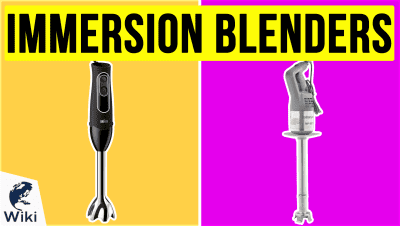6 Organizations Improving Health Care in New York
New York's population and its diverse communities produce complex health care needs, and not every community has the same resources or access. These organizations work in different ways to ensure patients have access to the care they need and that important research is being done to combat disease, while at the same time educating the next generation and encouraging citizens to get involved. This video was made with Ezvid Wikimaker.
6 Important New York Health Care Organizations
| Name | Location | Emphasis |
|---|---|---|
| PHI | Bronx | Works to improve care for elderly and disabled people by creating quality jobs and career options for skilled direct care workers |
| Columbia University Department of Psychiatry | Manhattan | Leading clinical research facilities paired with comprehensive patient care and educational programs in multiple specialties |
| Finger Lakes Donor Recovery Network | Rochester | Promotes the recovery of organs and tissues for transplants, works with hospitals to ensure that donors' wishes are honored, and offers support for the bereaved through the Family Services and Aftercare Program |
| Roswell Park Cancer Institute | Buffalo | Comprehensive oncology center that offers a personal treatment plan for each patient, conducts clinical trials, provides genetic screening, and offers support services like social work, rehabilitation, and spiritual counseling |
| Albert and Mary Lasker Foundation | Manhattan | Supports medical research through scholarships, a leadership development program, public lectures, online seminars, and the annual Lasker Awards |
| Mount Sinai Health System | Locations throughout New York | Eight member hospitals, the Icahn School of Medicine, and a network of care providers with an emphasis on patient safety and a commitment to creating an inclusive environment for the diverse communities they serve |
The 2019 Albert Lasker Basic Medical Research Award Winners on the Complexities of the Immune System
Facts & Myths About Organ Donation
| Statement | True or False? | Explanation |
|---|---|---|
| People with illnesses or health conditions can still be organ donors | Only a few conditions (such as active cancer or a systemic infection) would absolutely prevent a person from becoming a donor | |
| Seniors are too old to donate | The health of the organs is more important than the donor's age | |
| You can choose which organs you're willing to donate | Donors can opt to donate organ, eye, tissue, or all three and can change their status at any time | |
| Organ donation goes against most religions | While there are some outliers, organ donation is supported by many religions in the U.S. | |
| People often die while waiting for a transplant | According to the U.S. Health Resources & Services Administration, 20 people die each day due to a lack of viable organs | |
| Most organ donors actually donate their organs when they die | Only 3 in 1,000 people die in a way that allows for organ donation |
Liver Cancer Treatment Options at Roswell Park
In Depth
Modern healthcare draws on the combined efforts of enormous numbers of people - the doctors and nurses who treat patients, the donors and administrators who fund and manage hospitals, and the researchers who refine our understanding of the causes of illness and health. With that in mind, it's no surprise that many of the organizations pushing medical practice forward are located in New York, one of America's busiest cultural and intellectual crossroads. In no particular order, here are six New York-based groups working for the advancement of medicine.
Leading off the rundown at #1 is PHI, a nonprofit that works to improve care for elderly and disabled people by creating quality jobs for skilled professionals. They offer training in core competencies for direct care workers, promote the development of advanced career positions that build knowledge by increasing employee retention, and consult with organizations to optimize workplace practices. They also partner with employers to help them find and keep the best qualified candidates for caregiver roles.
PHI conducts research into the issues that affect direct care workers, and analysis to provide those shaping the health industry with the knowledge they need to strengthen the workforce. Informed by these investigations, they advocate at both the state and federal levels for reforms in policy and practice intended to benefit both givers and receivers of long-term care. Readers who want to learn about PHI's impact can view some highlights on their website, and those who want to contribute can make a tax-deductible gift.
Informed by these investigations, they advocate at both the state and federal levels for reforms in policy and practice intended to benefit both givers and receivers of long-term care.
#2 is the Columbia University Department of Psychiatry, among the world's leading institutions in the study of mental health, and one of the first to integrate psychiatric treatment with clinical research. Their laboratories, devoted to investigating the causes and impacts of brain disorders, explore topics ranging from the molecular biology of memory to the treatment of autism. Columbia researchers continue to push forward the scientific understanding of issues like addiction, brain development, and suicide.
Supported by cutting-edge science, Columbia's psychiatric faculty are dedicated treatment providers, committed to an individualized approach that focuses on patient needs and goals. The Department also trains students in the methods of psychiatric research, including a variety of post-graduate fellowships, and provides highly regarded education in clinical mental health care. Those who would like to contribute to this institution's vital work can donate, volunteer to assist with data collection and analysis, or even participate in a clinical trial.
Organization #3 is the Finger Lakes Donor Recovery Network. This nonprofit promotes the recovery of organs and tissues for transplants, working with hospitals to ensure that donors' wishes are honored. F.L.D.R.N. also offers support for the bereaved through the Family Services and Aftercare Program, pointing them toward support groups to help with the grieving process. For transplant recipients, the Network provides information about the process, and facilitates correspondence with donor families for those who wish to express gratitude and sympathy.
This nonprofit promotes the recovery of organs and tissues for transplants, working with hospitals to ensure that donors' wishes are honored.
Along with resources for patients and families, F.L.D.R.N. supplies educational materials for healthcare professionals discussing news, research, and best practices related to organ and tissue transplants. They also aim to promote awareness and acceptance of the value of donation, through outreach efforts like their Pass Life On campaign or the moving stories they share from recipients and donor families. Anyone wishing to aid in F.L.D.R.N.'s mission can make a financial contribution, or join the registry of committed donors.
#4 on our list is the Roswell Park Cancer Institute, founded in 1898 as the first center in the world dedicated solely to oncology. Their comprehensive and multidisciplinary approach brings together teams of specialists in different areas of medicine to develop and implement a personal treatment plan for each patient. The Institute also conducts a wide variety of clinical trials pushing research forward in areas like immunotherapy, offering cutting-edge and experimental treatments for those whose diseases haven't responded to conventional approaches.
Roswell Park recognizes that a patient's needs do not begin and end with disease treatment, providing support services like social work, rehabilitation, and spiritual counseling. Their facilities also offer diagnostic options including comprehensive genetic screening, as well as a survivorship program to provide ongoing assistance with life after diagnosis. There are numerous ways to help Roswell Park in the battle against cancer, like giving blood, participating in a fundraising event, or donating directly to fund the organization.
Their facilities also offer diagnostic options including comprehensive genetic screening, as well as a survivorship program to provide ongoing assistance with life after diagnosis.
Coming in at #5 is the Albert and Mary Lasker Foundation, established in 1942 by activist and philanthropist Mary Woodard Lasker and her husband Albert to bolster support for medical research, with its annual Lasker Awards recognizing individuals and organizations for major advances in medicine. The Foundation cultivates the next generation of scientific pioneers through scholarships for clinical researchers, an essay contest for discussion of critical topics in biomedical science, and a leadership development program for students and postdoctoral fellows.
The Lasker Foundation provides education about challenges and opportunities in medicine, with resources like their series of public lectures or their partnership with the iBiology project, which helps up-and-coming scientists create online seminars to share their work with the world. The organization also advocates for improvements in public policy, organizing social media efforts and producing opinion pieces to highlight the importance of research. Anyone inspired to support the Foundation's work on behalf of medical science can become a donor today.
We close our list with #6, the Mount Sinai Health System, a healthcare organization combining the resources and expertise of eight member hospitals to deliver integrated, state-of-the-art care. The network endeavors to embody service and compassion, with an emphasis on patient safety and a commitment to creating an inclusive environment for the diverse communities they serve. And through an array of laboratories spanning medical disciplines, Mount Sinai works to advance research on disease, treatment, and recovery.
And through an array of laboratories spanning medical disciplines, Mount Sinai works to advance research on disease, treatment, and recovery.
Mount Sinai's mission extends to educating future leaders in healthcare through the M.D. and graduate programs at the acclaimed Icahn School of Medicine, which seeks to revolutionize medical practice by promoting the exchange of ideas that challenge established paradigms. The network also helps keep the public informed with outreach efforts like their magazine and the Inside Mount Sinai blog. Interested individuals can make a gift of any size to help fund the organization's work in research, education, and care.




















